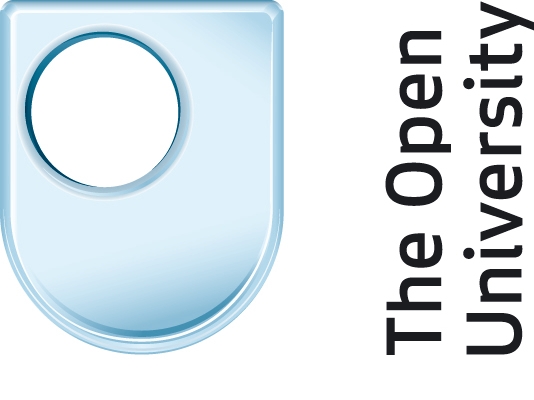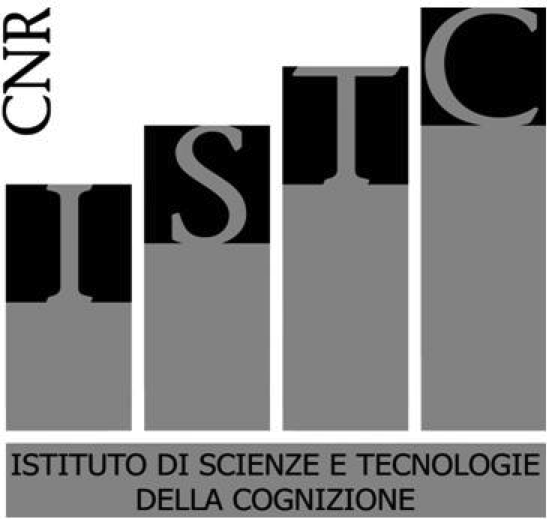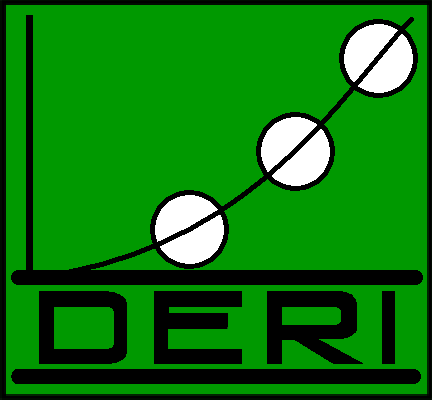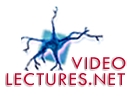Important Dates
- 01-Mar-2009 - Registration Opens
- 15-Apr-2009 - Registration Closes
- 01-May-2009 - Notification of Acceptance
- 01-Jun-2009 - Deadline for Payments
- 05-Jul-2009 - Arrival of Participants
- 06-Jul-2009 - Summer School Starts
- 11-Jul-2009 - Summer School Ends
News
- Tutorial and invited talk videos are now online (see invited speakers and turors)
- Tutorial and invited talk slides are now online (see invited speakers and turors)
- The list of invited talks is online
- The Programme of SSSW09 is online
Invited Speakers
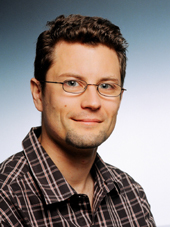
Philipp Cimiano (Delft University of Technology, Netherlands)
Philipp Cimiano is an assistant professor at the newly founded Web Information Systems group at the Delft University of Technology in the Netherlands. He graduated in Computer Science at the University of Stuttgart in 2002. Philipp Cimiano received his PhD in Applied Computer Science from the University of Karlsruhe in 2006. His PhD research was on the topic of learning ontologies from text and lead to the publication of “Ontology Learning from Text: Algorithms, Evaluation and Applications”, appeared at Springer Verlag in 2006. He has a strong background in the areas of Natural Language Processing, Ontology Learning, Ontologies, Semantic Web and Intelligent User Interfaces. He has been the main investigator in the EC-funded Dot.Kom project, co-project leader of the German-funded project SmartWeb as well as co-principle investigator in the EC-funded FP7 Integration Project X-Media and the DFG-funded project Multipla. He has been nominated in 2008 as one of “AI’s 10 to Watch” by the IEEE Intelligent Systems Magazine, an award given to the top 10 young researchers in the field of artificial intelligence worldwide. He serves on boards of international journals such as the International Journal on Semantic Computing (IJSC) and as reviewer for international journals (Data Knowledge Engineering (DKE), International Journal on Human-Computer Studies (JHCS), International Journal of Web Semantics (IJWS), IEEE Internet Computing) as well as for international conferences in the areas of natural language processing (ACL, EACL), artificial intelligence (IJCAI) as well as semantic web (ISWC/ASWC).
Website
Talk: Natural Language and the Semantic Web: a crucial symbiosis (Slides, Video)
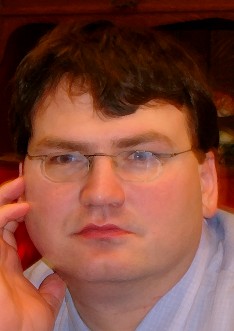
Stefan Decker (DERI, Ireland)
Prof Stefan Decker is a full professor at the National University of Ireland and the director of the Digital Enterprise Research Institute (DERI) in Galway. Prof Decker obtained in 1995 a masters in Computer Science at the University of Kaiserslautern (awarded with distinction). From 1995 to 1999 he worked towards a Ph.D. degree in Computer Science at the University of Karlsruhe (awarded 2002 with distinction). From 1999-2002 he worked as a Postdoc and Research Associate at the Computer Science Department of Stanford University and established one of the first Semantic Web research groups. From July 2002 to July 2005, he worked as a Computer Scientist and Research Assistant Professor at the Information Sciences Institute of the University of Southern California, USA. In October 2003 Prof Decker moved to Ireland to help to set up a new Research Institute concerned with the Semantic Web. ince July 2006 Prof Decker is full professor and director of the Digital Enterprise Research Institute. His current research interests include the Semantic Web, metadata, ontologies and semi-structured data, web services, and applications for Digital Libraries, Knowledge Management, Information Integration and Peer-to-Peer technology. He published around 80 papers as books and journal, book, conference, and workshop contributions. He co-organized around 35 scientific workshops and conferences and has edited several special issues of scientific journals. He was editor-in-chief of Elsevier's journal of Web Semantics, editoral committee member of the Electronic Transactions on Artificial Intelligence (ETAI) (the Semantic Web), the Journal on Internet Research and the Journal on Web Intelligence and Agent Systems (WIAS) and is recognized as one of the most widely cited Semantic Web scientists. His dissertation work was quoted as one of the inspirations for the DARPA DAML program, which span the Semantic Web effort.
Website
Talk: The Blind Men, the Elephant, and the Semantic Web: some perspectives (Slides, Video)

Mark Greaves (Vulcan, Inc., US)
Dr. Mark Greaves is currently Senior Research Program Manager at Vulcan, Inc., the private investment vehicle for Paul Allen (co-founder of Microsoft, www.vulcan.com). At Vulcan, he is sponsoring advanced research in large knowledge bases and advanced web technologies, including Project Halo (www.projecthalo.com).
Formally, Mark was Program Manager in DARPA's Information Exploitation Office (IXO) for the DAML, UltraLog, and Advanced Logistics Projects. At DARPA, he is sponsored research on logistics and supply chain control technologies, formal ontology specification, semantic web technology, and the application of software agent technology to problems of distributed control of complex systems-of-systems. Prior to coming to DARPA, he led advanced programs in software agent technology at the Mathematics and Computing Technology group of Boeing's Phantom Works division. His main research interests are in mathematical logic, semantic web, and software agent technology, about which he has published two books and over 20 papers.
Talk: An Industrial Perspective on the Semantic Web (Slides, Video)
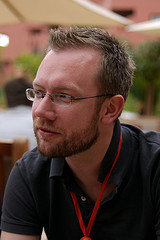
Tom Heath (Talis, UK)
Tom is a Researcher in the Platform Division at Talis, where he leads research into recommender systems, collective intelligence and user interaction in a Linked Data/Semantic Web context. Tom has a first degree in Psychology from the University of Liverpool and a PhD in Computer Science from The Open University's Knowledge Media Institute. His doctoral research examined how a richer understanding of trust decisions in word of mouth recommendation can be combined with Semantic Web technologies and social networks to improve information-seeking processes on the Web. In the course of his PhD Tom created the Linked Data reviewing and rating site Revyu.com, winner of the 2007 Semantic Web Challenge at the International Semantic Web Conference. He has been active in the Linked Data community since its inception in early 2007, co-authoring the tutorial "How to Publish Linked Data on the Web" and the recent Special Issue of IJSWIS on the subject of Linked Data. In 2009 Tom will co-chair the 2nd International Workshop on Linked Data on the Web at the International World Wide Web conference, and the Semantic Web In Use tracks at the European and International Semantic Web conferences.
Website | Email
Talk: How to Publish Linked Data on the Web (Slides, Video)
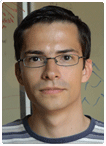
Peter Mika (Yahoo! Research, Spain)
Peter Mika is a researcher at Yahoo! Research, Barcelona, focusing on Semantic Web technologies. He obtained a PhD in 2007, from the Business Informatics group of the Faculty of Sciences (FEW) at the Vrije Universiteit, Amsterdam. His interdisciplinary work in the field of Social Networks and the Semantic Web earned a Best Paper Award at the International Semantic Web Conference in Galway, 2006 and a First Prize at the Semantic Web Challenge of 2005. He is also author of the book "Social Networks and the Semantic Web", published in 2007 by Springer Verlag. He has been involved in several large European Semantic Web projects such as On-To-Knowledge, SWAP (Semantic Web and Peer-to-Peer) and WonderWeb. He is chief developer in a number of open source projects, including the Elmo API for the Sesame RDF store (see openrdf.org), openacademia.org and flink.semanticweb.org. From November, 2005 he is a co-chair of the Semantic Web Challenge, together with Michael Uschold (2005) and Jennifer Golbeck (2006).
Website | Email
Talk: Making use of metadata on the Web: from semantic annotations to semantic search (Slides, Video)
Tutors

Mathieu d'Aquin (The Open Universty, UK)
Dr. Mathieu d'Aquin is a researcher at the Knowledge Media Institute of the Open University (United Kingdom). He obtained a PhD from the University of Nancy, France, where he worked on real-life applications of semantic technologies to medical knowledge management and decision support. As a member of the EU Integrated Project NeOn, his main research interests concern techniques such as modularization and alignment for ontology management, as well as infrastructures to support the development of next generation Semantic Web applications (the Watson Semantic Web search engine). As such, Mathieu is involved in the development of several Semantic Web applications, covering various topics (e.g. ontology building, ontology alignment, semantic search) and domains.
Website | Email
Tutorial: Exploring and Using the Semantic Web (Slides, Video)

Sean Bechhofer (University of Manchester, UK)
Sean Bechhofer is a Lecturer in the Information Management Group of the University of Manchester, having spent the period from 1993 to 2004 as a Research Fellow. His research interests are centered around the technologies required to implement and deliver the Semantic Web and over the last ten years, he has helped produce a number of tools and infrastructure to support the use of Semantic Web technology. Through the COHSE project, Sean was involved in marrying together hypermedia and semantics, producing an early example of a Semantic Web system. He was primarily responsible for the development of OilEd, one of the first ontology development tools to utilise DL style reasoning. He was a participant in the W3C WebOnt Ontology Language Working Group, providing an implementation of a validating parser for OWL along with supporting infrastructure for the use of OWL in applications. Sean is also currently Research Area Manager for the EU Network of Excellence KnowledgeWeb, an EU thematic network that co-ordinates leading research groups in the Semantic Web area. He has given a number of invited talks and tutorials and has published over fifty articles in journals, conferences and workshops.
Website

Fabio Ciravegna (University of Sheffield, UK)
Fabio Ciravegna is professor of Language and Knowledge technologies at the University of Sheffield, UK. His interests are on the intersection between the Semantic Web, Information Extraction and (large scale) Knowledge Management. He is the director of the EU Integrated project X-Media (www.x-media-project.org) on Large Scale Knowledge Management across Media which involves 15 partners and has a budget of €13.6M. He is also principal investigator in IPAS (www.3worlds.org), a project jointly sponsored by the UK DTI and Rolls-Royce plc on advanced knowledge management in the aerospace industry. He collaborates with a number of companies including Rolls-Royce, Fiat, Kodak Eastman and Lycos. From 2002-2005 he was director of the European project _Dot.Kom_, a project on Information Extraction from Text for Knowledge Management. Fabio holds a PhD from the University of East Anglia and a Doctorship from the University of Torino, Italy.
Website | Email
Tutorial: Semantic Web Technologies for Knowledge Management (Slides, Video)

Jérôme Euzenat (INRIA Rhone-Alpes, France)
Jérôme Euzenat is senior research scientist at INRIA (Montbonnot, France). He has set up and leads the INRIA Exmo team dedicated to "Computer-mediated communication of structured knowledge" which is also part of the Laboratoire d'Informatique de Grenoble (Grenoble computer science lab). Dr Euzenat has contributed to reasoning maintenance systems, object-based knowledge representation, symbolic temporal granularity, collaborative knowledge base construction, multimedia document adaptation and semantic web technologies. His all time interests are tied to the relationships holding between various representations of the same situation. Hence, his interest in connecting heterogeneous ontologies. His work on heterogeneity, partially carried out in Knowledge web, has been recently published as a book, Ontology matching, written in collaboration with Pavel Shvaiko.
Website
Tutorial: Ontology matching tutorial (Slides, Video)
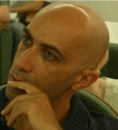
Aldo Gangemi (ISTC-CNR, Italy)
Aldo Gangemi is senior research scientist at the Institute for Cognitive Sciences and Technology of the Italian National Research Council. He is co-founder of the Laboratory for Applied Ontology, a leading research unit in the areas of conceptual modeling, formal ontology, and ontology engineering.
His research topics include knowledge engineering, the semantic web, NLP, and business modeling, with more than 100 international refereed publications.
He has been working in Italian and EU projects, spanning from the pioneering biomedical ontology project Galen (1992) to the ongoing project NeOn. He also coordinates the Italian National Research Council research programme on semantic intrawebs.
His work in ontology engineering concentrates on collaborative aspects of ontology lifecycle, ontology design patterns, reengineering methods for ontology construction, organizational knowledge management, foundational ontologies (he's one of the designers of DOLCE), and metamodels for lexical knowledge bases.
Website | Email
Tutorial:Best practices in ontology design (Slides, Video)

Asun Gomez-Perez (Universidade Politecnica de Madrid, Spain)
Prof. Asunción Gómez-Pérez is Professor at the Univ. Politécnica de Madrid and director or the OEG at UPM. She has a B.A. in Computer Science (1990), M.S.C. on Knowledge Engineering (1991), Ph.D. in Computer Sciences (1993) and MS.C. on Business Administration (1994). She was visiting (1994-1995) the Knowledge Systems Laboratory at Stanford University. She also was the Executive Director (1995-1998) of the Artificial Intelligent Laboratory at the School.
The most representative projects she is participating are: SEEMP (FP6-23747), NeOn (FP6-027595), OntoGrid (FP6-511513) as project coordinator, Knowledge Web NoE (Fp6-507482) acting as Scientific Vice-director, Esperonto (IST-2001-34373), the OntoWeb (IST-2000-25056) thematic network, and also the MKBEEM (IST-1999-10589) project.
She has published more than 150 papers on the above issues. She has led several national and international projects related with ontologies and the semantic web funded by various institutions and/or companies related. She is author of one book on Ontological Engineering and co-author of a book on Knowledge Engineering.
She has been codirector of the summer school on Ontological Engineering and the Semantic Web in 2003, 2004, 2005, 2006, 2007 and 2008. She was program chair of ESWC'05 and was of EKAW'02. She has been co-organizer of the workshops and conferences on ontologies at ECAI-04, IJCAI-03, ECAI-02, IJCAI-01, ECAI-00, IJCAI-99, ECAI-98, SSS-97 and ECAI-96. She has tought tutorials on Ontological Engineering at the summer schools.
Website | Email
Tutorial: Reuse and Re-engineering of Multilingual Resources for Building Ontologies (Slides, Video)
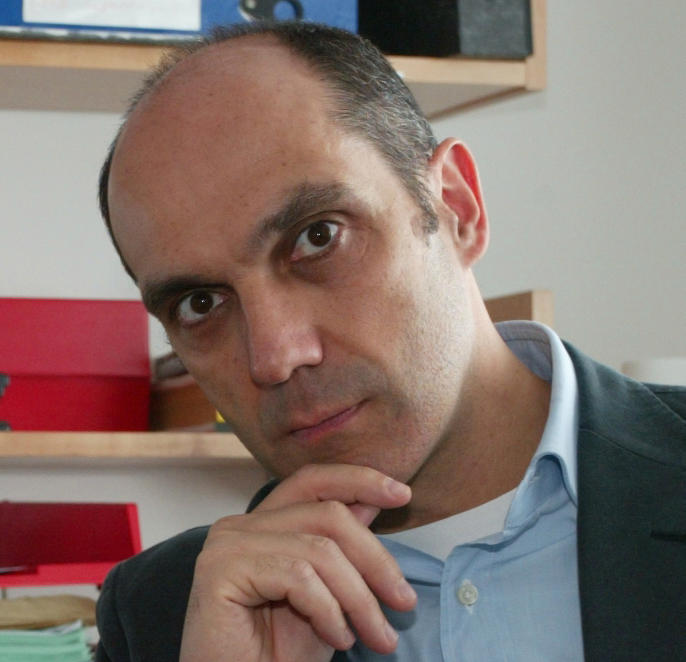
Enrico Motta (The Open University, UK)
Prof. Enrico Motta is Professor in Knowledge Technologies and Former Director (2000 -2007) of the Knowledge Media Institute (KMi) at the Open University in UK. Prof. Motta has a Laurea in Computer Science from the University of Pisa in Italy and a PhD in Artificial Intelligence from the Open University. Prof. Motta is one of the leading scientists in the world in the new field of the semantic web, which can be seen as a large scale web of data, able to support large scale machine interoperability, thus enabling novel intelligent functionalities for locating and dynamically aggregating information on the web. Over the years, Prof. Motta has obtained over £6M in research funding and has led KMi's contribution to numerous high-profile projects, such as the highly prestigious, EPSRC-funded Interdisciplinary Research Collaboration on Advanced Knowledge Technologies (AKT), as well as several EU-funded ones, most recently NeOn, X-Media, and Open Knowledge. Prof. Motta is Editor in Chief of the International Journal of Human Computer Studies and is also on the editorial board of IEEE Intelligent Systems and the Journal of Web Semantics. He founded the ground-breaking European Summer School on Ontological Engineering and the Semantic Web, which is now in its seventh edition. He is the author of 180 refereed publications. These include the book, Reusable Components for Knowledge Modelling, which is published by IOS Press. Prof Motta also chaired the 14th International Conference on Knowledge Engineering and Knowledge Management (EKAW 2004) and was the Programme Chair of the 4th International Semantic Web Conference (ISWC 2005).
Website | Email

Valentina Presutti (ISTC-CNR, Italy)
Valentina Presutti received her Ph.D in Computer Science in 2006 at the University of Bologna (Italy). Currently, she is a researcher at the Semantic Technology Laboratory of the National Research Council (CNR) in Rome. She is one of the key researchers in the EU funded projects NeOn and IKS, and she started the ontologydesignpatterns.org initiative, which she actively participates in as one of the editors in chief. She has published in international journals/conferences/workshops on topics such as Semantic Web and ontology design. She also teaches software engineering at the University of Rome "La Sapienza", and works as consultant for private as well as public organizations. Her research interests include Semantic Web, ontology design, collaborative knowledge/content management, and ontology-based software engineering.
Website | Email
